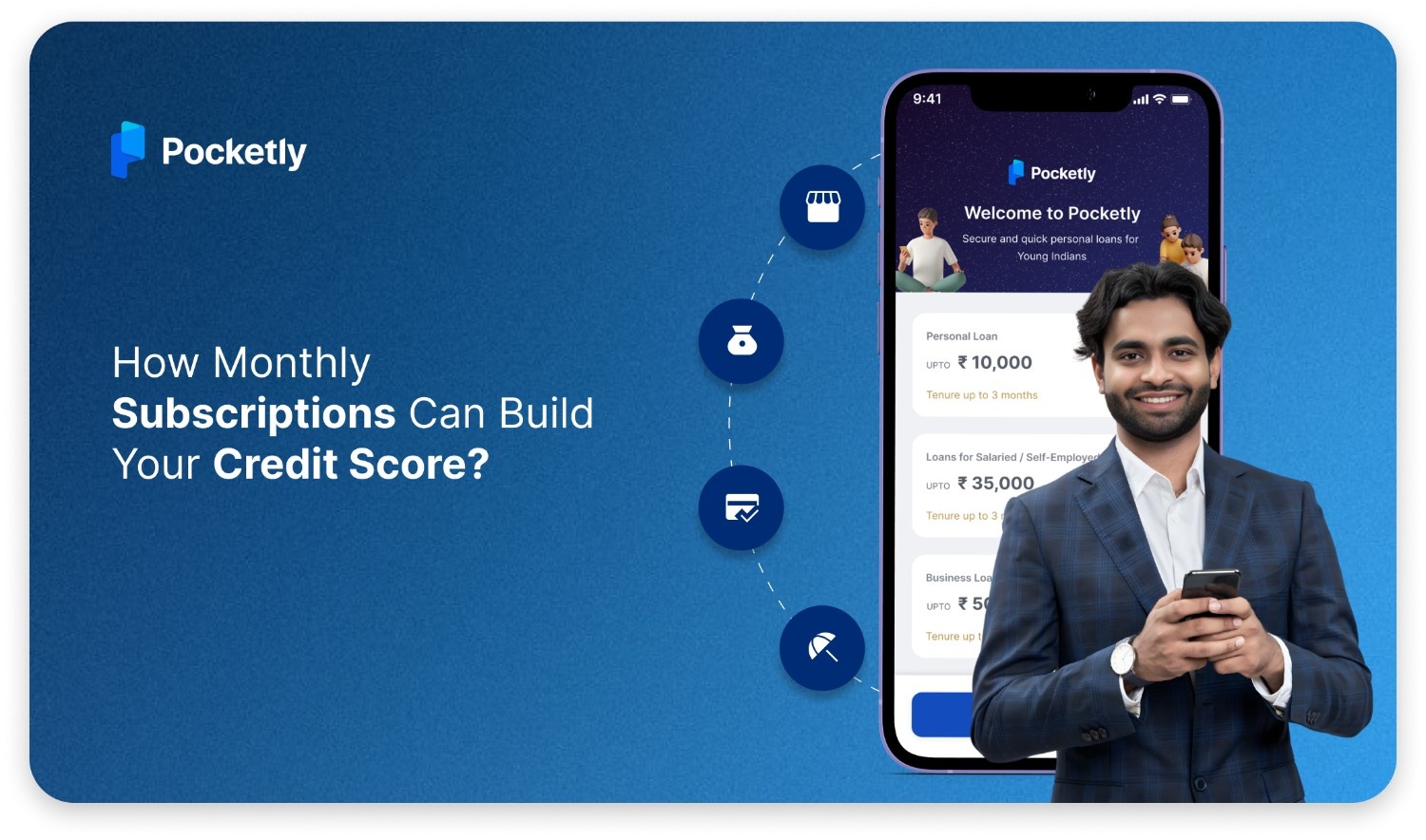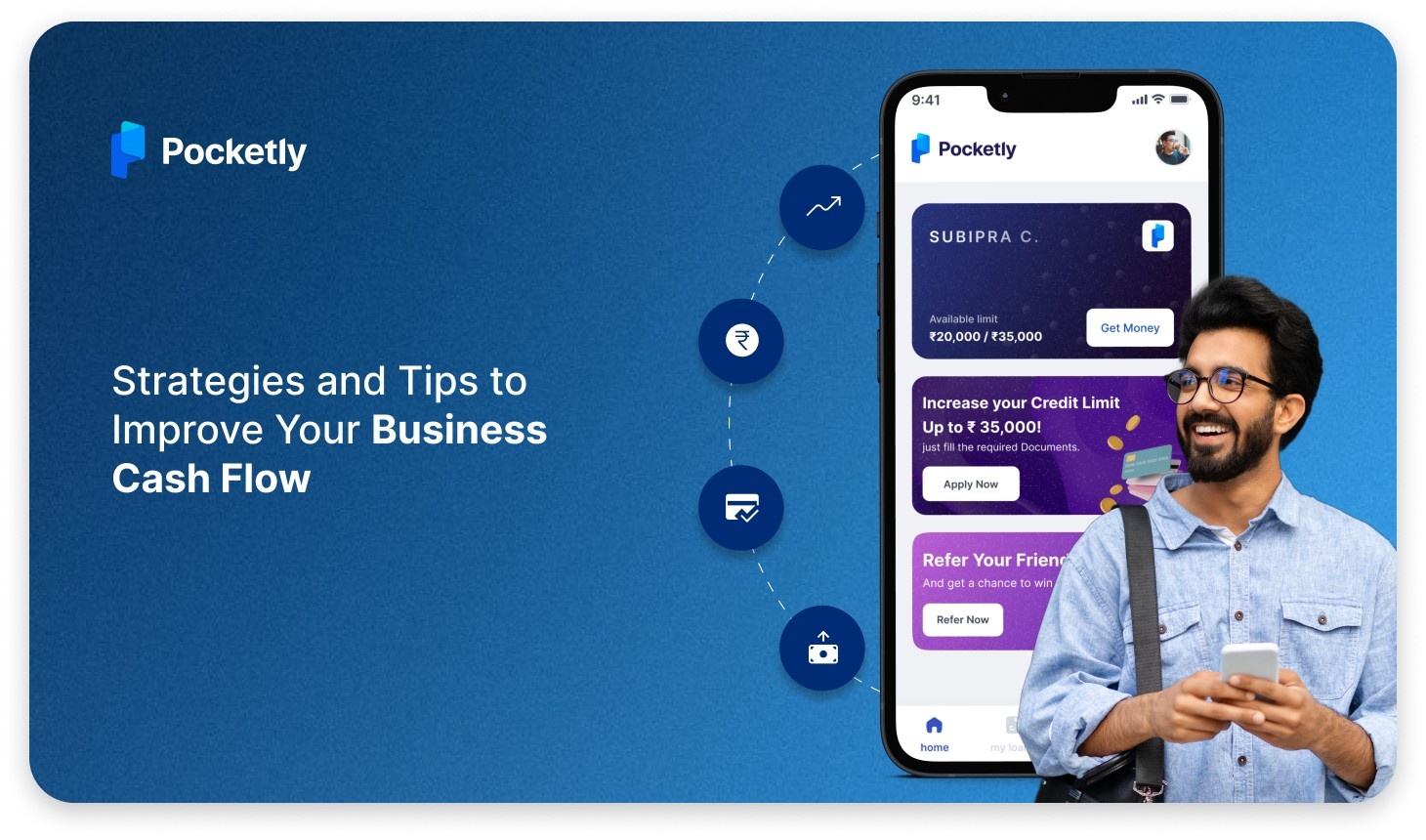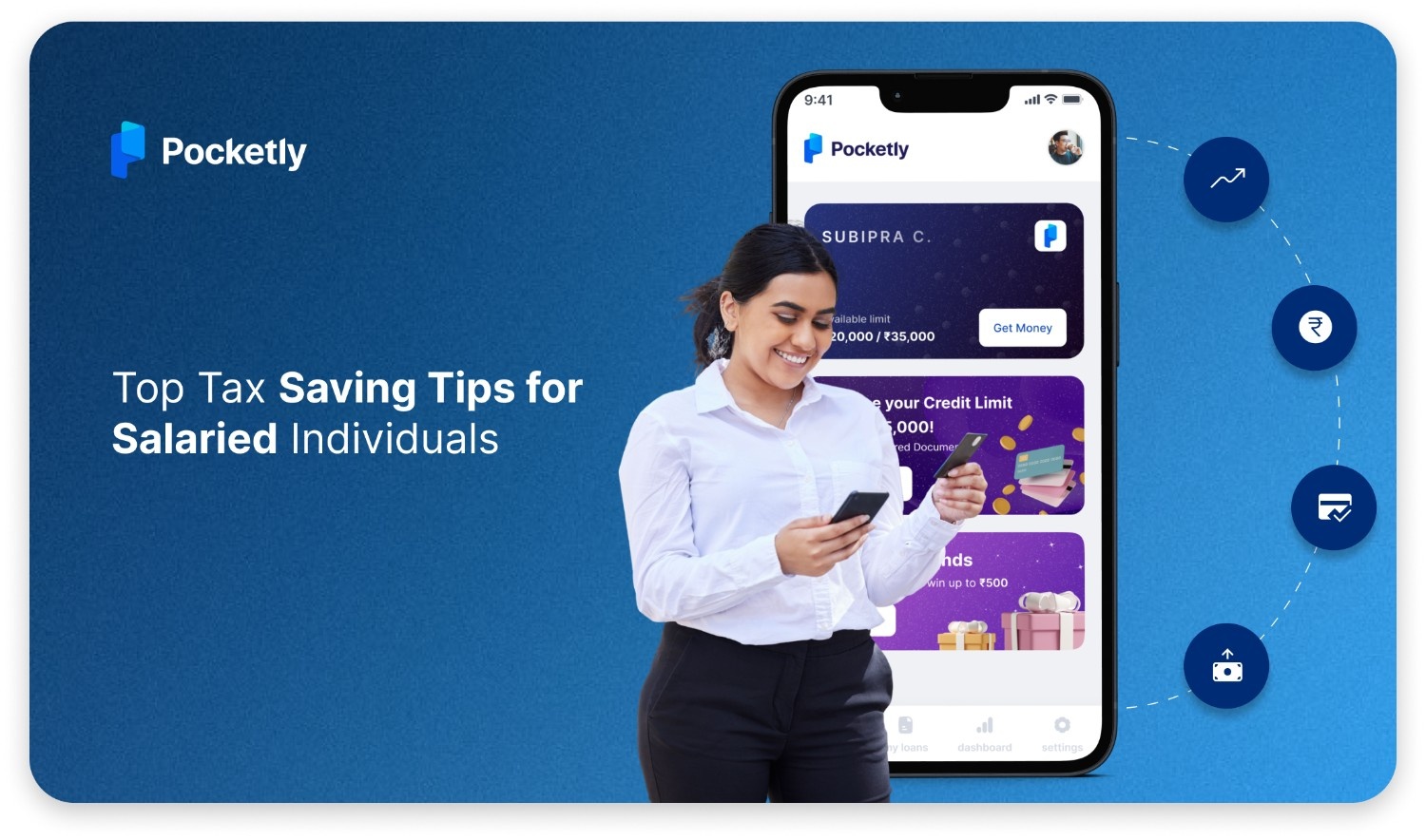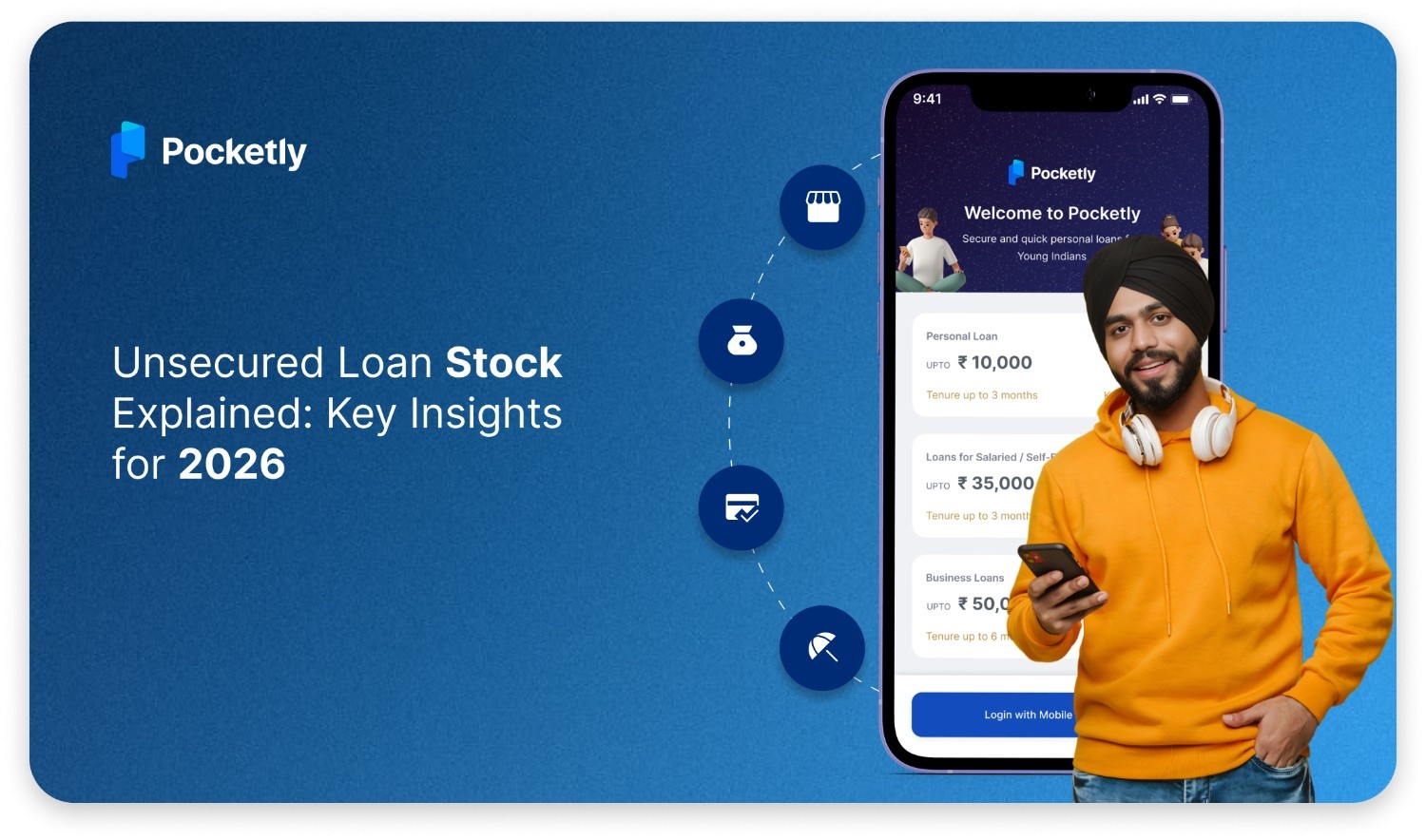Did you know that a CIBIL score above 700 is considered good, and anything close to 900 is the ideal range for accessing the best loan terms? If you're just starting to build your credit, this might seem like a daunting target. But don't worry, understanding where your CIBIL score starts and how it grows is the first step towards taking control of your financial future.
Whether a student, young professional, or entrepreneur, your CIBIL score can make all the difference when applying for loans, credit cards, or even renting a home. Yet, many people don't realize that the CIBIL score journey starts long before your first loan application.
In this blog, we'll walk you through the basics of how your CIBIL score begins, what factors influence it, and how you can work towards a strong financial future with a solid credit score. By the end, you'll understand precisely where to start and what steps to take to ensure you're on the right path.
What is a CIBIL Score?
A CIBIL score is a three-digit number crucial to determining your creditworthiness. It reflects how well you manage your credit and is used by lenders to assess your lending risk. The score ranges from 300 to 900, with a higher score indicating a better credit profile.
Your CIBIL score is generated based on your credit report, which includes information on your credit history, payment behavior, and loan utilization. This score is used by banks, financial institutions, and lenders to decide whether to approve your loan application and, if approved, at what interest rate.
Why Does Your CIBIL Score Matter?
Your CIBIL score is more than just a number; it affects key areas of your financial life. Understanding these impacts will help you realize why maintaining a good score is essential. Let’s explore some of the ways your CIBIL score can shape your financial journey:
- Loan Approval: A higher CIBIL score increases your chances of getting approved for loans, as lenders see you as a low-risk borrower.
- Interest Rates: If your CIBIL score is high, you are more likely to receive loans at lower interest rates, saving you money in the long run.
- Credit Card Issuance: A good CIBIL score can help you qualify for credit cards with better benefits, like higher credit limits and reward points.
- Renting Property: Some landlords use CIBIL scores to evaluate whether you are financially reliable for renting their property.
In essence, your CIBIL score is a key indicator of your financial health and can impact several aspects of your life, from securing loans to managing everyday finances. Understanding it and improving it over time is crucial for ensuring that you’re always in control of your financial journey.
Understanding the importance of your CIBIL score is just the start. Now, let’s discover how it’s calculated and what factors play a role in shaping that all-important number.
Also Read: How to Achieve a Perfect 900 CIBIL Score?
How is a CIBIL Score Generated?
Your CIBIL score doesn’t just appear out of nowhere. It's the result of a detailed process where various pieces of data are collected, analyzed, and then used to calculate that all-important three-digit number. Understanding how this process works can help you better manage and improve your score. Let's break down how your CIBIL score is generated step by step:
Data Collection
The first step in generating a CIBIL score is collecting data. Credit bureaus gather information from multiple sources like banks, financial institutions, and credit card companies. These sources provide information about your credit history, outstanding debts, and payment behavior. The more accurate and up-to-date this data is, the more reliable your score will be.
Credit Report
Once the data is collected, a credit report is created. This report provides a comprehensive view of your credit history, including all loans, credit card accounts, payment behaviors, and any missed payments or defaults. Your CIBIL score is derived from this report. The credit report also includes information on your credit utilization and the length of your credit history, both of which contribute to the final score.
Calculation
Finally, the credit bureaus apply algorithms to the data in your credit report to compute your score. These algorithms consider several factors, including:
- Payment History: How consistently you’ve made payments on time
- Credit Utilization: The percentage of available credit you’re using
- Credit Mix: The types of credit you have (e.g., credit cards, personal loans, etc.)
- Credit Inquiries: The number of times your credit report has been checked
Example of CIBIL Score Calculation:
Let’s say your CIBIL score is calculated based on the above factors:
- You’ve consistently paid your credit card bills and loan installments on time (positive payment history).
- Your credit utilization ratio is 40% (slightly high), but you’re working on reducing it (moderate impact).
- You have a mix of a credit card, personal loan, and car loan (good credit mix).
- You’ve had a couple of hard inquiries in the past few months (slightly negative, but not significant).
Based on these factors, your CIBIL score might fall within the range of 650-750 (on a scale of 300-900). If you manage to improve your credit utilization and reduce hard inquiries, your score could increase further.
Based on these inputs, your CIBIL score is calculated, reflecting how well you manage credit and your overall creditworthiness.
Now, where does it all begin? Let's look at what happens when you have no credit history and how you can start building your score from scratch.
Also Read: Apply for 4000 Personal Loan Online with Low Salary and Credit Score
Where Does a CIBIL Score Start?
A CIBIL score doesn’t appear automatically; it has to start somewhere. If you’ve never had credit before, you may wonder where to begin. Whether you're a young adult, new to credit, or simply haven't used credit in the past, your journey toward a solid CIBIL score starts here:
No Credit History
For many individuals, especially those who are just starting their financial journey, no credit history can be a common issue. If you have never applied for a loan, credit card, or any form of credit, then there’s no record of your borrowing behavior. As a result, you won’t have a CIBIL score initially.
This can present challenges, especially when trying to apply for financial products in the future. Without a credit score, lenders have no way of assessing your creditworthiness, which may lead to rejected applications or higher interest rates if you are approved.
New-to-Credit (NTC) Individuals
For individuals who are new to credit (NTC), the process is a bit different. Your first steps into the world of credit are important. When you first take out a loan or open a credit card, your CIBIL score will typically start at zero or very low, depending on your financial activity.
Over time, as you make timely payments and manage your credit responsibly, your score will begin to grow. Credit bureaus will start building your score based on your payment history, credit usage, and length of credit history. While your score may be low initially, it can improve significantly with consistent, responsible borrowing.
Building a Credit History
If you're looking to build your CIBIL score from scratch, here are a few effective steps you can take:
- Apply for a Secured Credit Card: These cards require you to deposit money as collateral, making them ideal for individuals new to credit. By using the card responsibly and paying off the balance on time, you can begin building your credit history.
- Take a Small Loan: If you're able to, applying for a small personal loan or even a student loan can help you start building credit. Ensure you make regular, on-time payments to avoid any negative marks on your credit report.
- Become an Authorized User: You can ask a family member or friend with a strong credit history to add you as an authorized user on their credit card. This can help you build credit by association, especially if they have a good payment history.
Starting your credit journey can feel overwhelming, but you can build a strong credit foundation with the right steps. As your score begins to grow, understanding what influences it will be key to maintaining a healthy credit profile.
If you’re just starting out and worried about building your credit score, Pocketly can be a helpful companion. It offers easy-to-access personal loans without complex paperwork, helping you establish a positive credit history through timely repayments.
Ready to take control of your credit journey? Download the Pocketly app now and start managing your finances with confidence.
Factors Affecting Your CIBIL Score
Several factors influence your CIBIL score, each playing a role in determining your creditworthiness. Let's break down the key elements that influence your CIBIL score:
Payment History
According to most scoring models, your payment history is a significant portion of your CIBIL score. This includes whether you pay your credit card bills, loans, or other financial obligations on time. Missing payments or having defaults can hurt your score significantly.
- Timely Payments: Consistently paying bills on time helps build a positive credit history.
- Late Payments: Delayed payments, especially those that go into default, negatively affect your score.
Credit Utilization Ratio
Your credit utilization ratio is the percentage of your available credit that you're using at any given time. A high credit utilization ratio suggests that you are dependent on credit, which can signal to lenders that you may be overextending yourself financially.
- Ideal Utilization: To maintain a healthy score, keep your credit utilization below 30% of your available credit.
- High Utilization: If you use a large portion of your credit limit regularly, it could indicate potential financial stress, which may negatively impact your score.
Credit Mix
Lenders prefer a diverse mix of credit types in your history. A healthy credit mix indicates that you can responsibly manage different kinds of debt, such as credit cards, personal loans, and mortgages.
- Secured vs. Unsecured Credit: A combination of secured loans (like home loans) and unsecured credit (like credit cards) can benefit your score.
- No Credit Mix: Relying heavily on one type of credit, especially unsecured, might not help improve your score.
Credit Inquiries
Every time you apply for a new loan or credit card, the lender conducts a hard inquiry on your credit report, which is recorded. Frequent applications for new credit can signal financial distress and negatively impact your score.
- Soft Inquiries: Checking your own credit score doesn't affect it. It's the hard inquiries from lenders that matter.
- Frequent Hard Inquiries: If you apply for credit repeatedly within a short period, it can make lenders think you're struggling financially, lowering your score.
Pocketly offers a simple application process with fast approval, meaning fewer hard inquiries on your credit report. By providing quick loans without extensive paperwork, Pocketly helps limit the number of times your credit is checked.
How to Check Your CIBIL Score
Knowing your CIBIL score is the first step to understanding your credit health. Regularly checking your score helps you stay informed, spot any discrepancies early, and take control of your financial future.
Fortunately, accessing your CIBIL score in India is straightforward and convenient. Before you check your score, here's a quick list of the key details you’ll need to have handy to verify your identity and access your credit information securely:
Official Platforms to Check Your Score
Several trusted platforms allow you to check your CIBIL score quickly and securely:
- CIBIL's Official Website: The most reliable source for an accurate credit report and score.
- Popular Financial Portals: Some websites like Pocketly also provide easy access to your credit score, often with additional tools to help you understand and improve it.
What You’ll Need to Check Your Score
To access your CIBIL score, you’ll typically be asked for:
- Your Permanent Account Number (PAN)
- Basic personal details such as name, date of birth, and address
- Contact information, including your mobile number and email address
These details help verify your identity and ensure that your credit information is secure.
How Often Should You Check Your CIBIL Score?
You can check your CIBIL score once every 12 months for free through the official website. Monitoring your score regularly allows you to:
- Detect any unauthorized activity or errors early
- Track your credit improvement progress over time
- Make informed decisions before applying for new credit
Checking your CIBIL score is a simple yet powerful way to keep your financial health in check. Knowing where you stand lets you plan better and take steps toward building a stronger credit profile. Knowing your CIBIL score is just the beginning. To strengthen your credit profile and know better financial opportunities, it’s essential to adopt smart credit habits that boost your score over time.
Also Read: How to Check the Number of Active Loans on Your PAN Card
Tips to Improve Your CIBIL Score
Improving your CIBIL score is all about consistent, responsible financial behaviour. Here are some effective strategies you can start implementing today:
- Timely Payments
- Always ensure you pay your credit card bills, EMIs, and other dues on or before the due date. Late payments can significantly harm your score, while timely payments build a positive credit history.
- Maintain Low Credit Utilization
- Keep your credit utilization ratio below 30% of your available credit limit. Using too much credit at once can signal financial stress to lenders and lower your score.
- Avoid Multiple Credit Applications
- Frequent loan or credit card applications lead to multiple hard inquiries, which can negatively affect your score. Apply for new credit only when necessary and space out your applications.
- Regular Monitoring
- Regularly check your credit report to spot any errors or fraudulent activities early. Disputing inaccuracies promptly helps maintain an accurate credit record.
By adopting these simple but effective habits, you can steadily build and maintain a strong CIBIL score, opening the door to better financial opportunities and peace of mind.
How Pocketly Can Support You When Your Credit Score is Just Starting
Starting your credit journey can feel challenging, especially if you don't yet have a CIBIL score or your credit history is limited. Traditional lenders often look for a solid credit record before approving loans, leaving new borrowers without financial support.
Pocketly understands this hurdle and offers an accessible way to begin building your credit profile responsibly. With loans ranging from ₹1,000 to ₹25,000, Pocketly allows you to access credit without the need for collateral or a lengthy credit history.
Why Pocketly Is Ideal for New Credit Builders
- Quick and Easy Approval: Pocketly’s streamlined application process lets you get approved quickly, even if you’re new to credit.
- Small Loan Amounts: Borrow manageable amounts that suit your current financial situation and repayment ability.
- No Collateral Needed: You don’t have to pledge any assets, making it safer as you build your credit.
- Build Credit History: Timely repayments with Pocketly are reported to credit bureaus, helping you create a positive credit record from the start.
- Transparent and Fair: Clear terms and reasonable interest rates mean you know exactly what you’re signing up for.
For those just beginning to build their CIBIL score, Pocketly offers a practical and supportive solution, helping you establish credit health without overwhelming financial pressure.
Curious about how to apply? Explore our simple guide: How to Apply for a Pocketly Loan.
Conclusion
Starting your credit journey might feel overwhelming, but it’s also an opportunity to set a strong financial foundation for the future. Understanding where your CIBIL score begins and the factors that influence it empowers you to make smarter financial decisions. Tools like Pocketly can help bridge the gap by providing accessible loans that support responsible credit building without the typical barriers.
Taking control early means you’re not just improving your credit score, you're making better loan terms, greater financial freedom, and a more secure tomorrow.
Ready to take the first step? Download the Pocketly app today on iPhone or Android and start building your credit confidently, with loans customized for you.
FAQs
1. When does my CIBIL score start appearing?
Your CIBIL score starts to build once you take out your first loan or credit card and the lender reports your payment behavior to the credit bureaus.
2. Can I have a CIBIL score without any loans or credit cards?
No, without any credit activity, there’s no data for the bureaus to generate a score, so your CIBIL score won’t exist until you have a credit history.
3. How long does it take to build a good CIBIL score?
Building a good score usually takes at least 6 months to a year of consistent, on-time repayments and responsible credit usage.
4. Does applying for a loan for the first time impact my credit score negatively?
A new loan application results in a hard inquiry, which may cause a slight temporary dip, but responsible repayment quickly builds your score.
5. How can Pocketly help me if I don’t have a credit history yet?
Pocketly offers small loans with flexible repayment options that can help you build your credit history through timely payments, without needing collateral or a perfect credit score.










